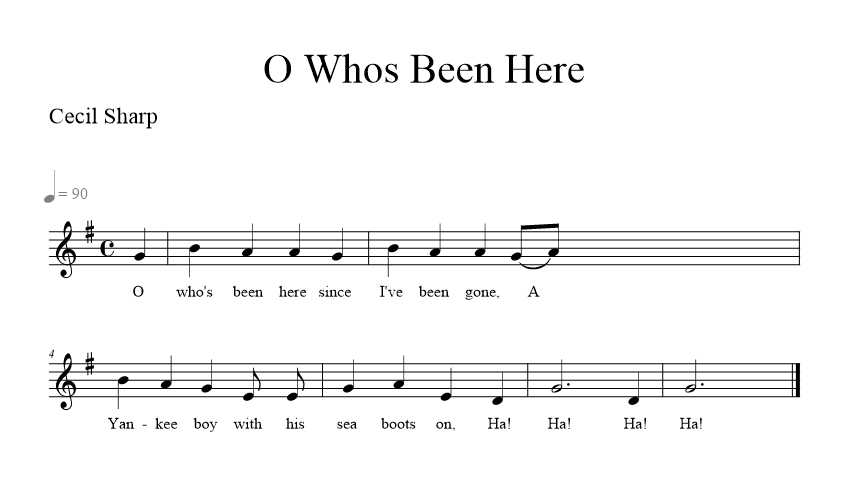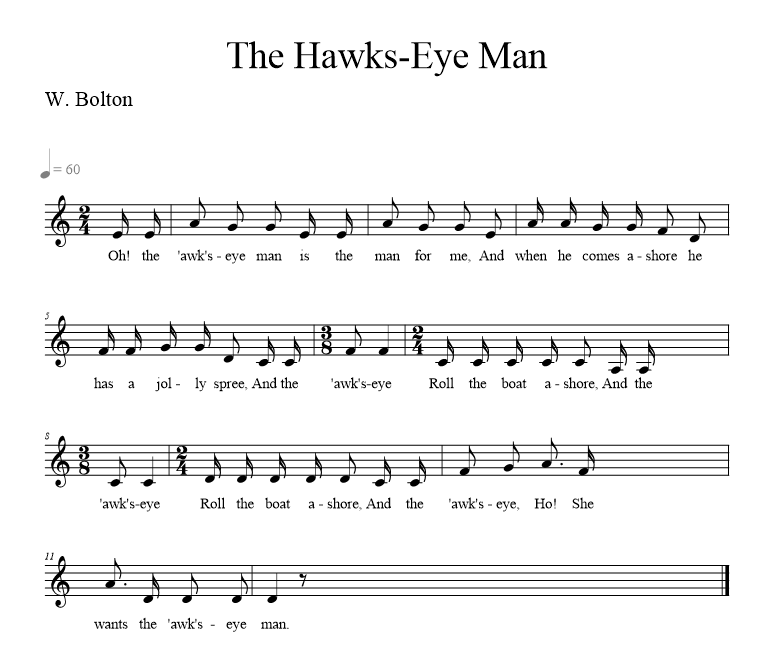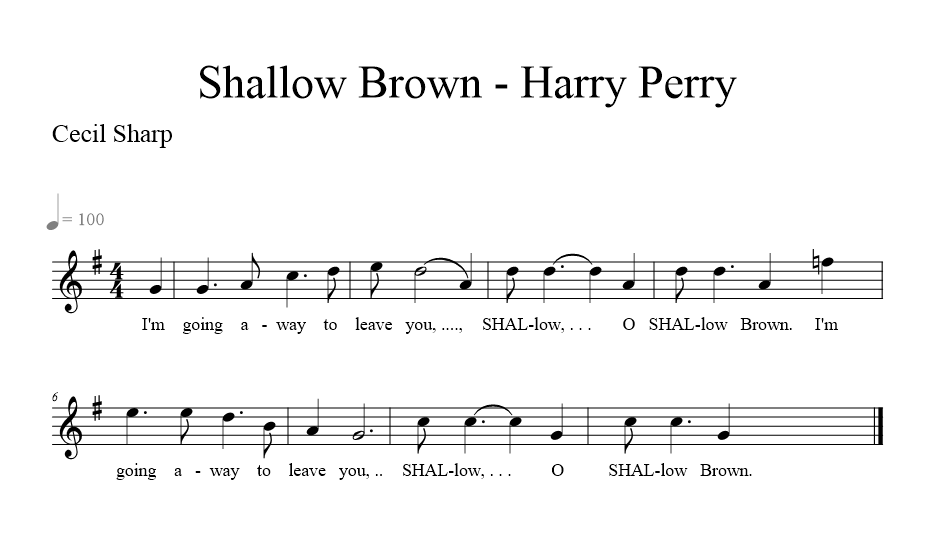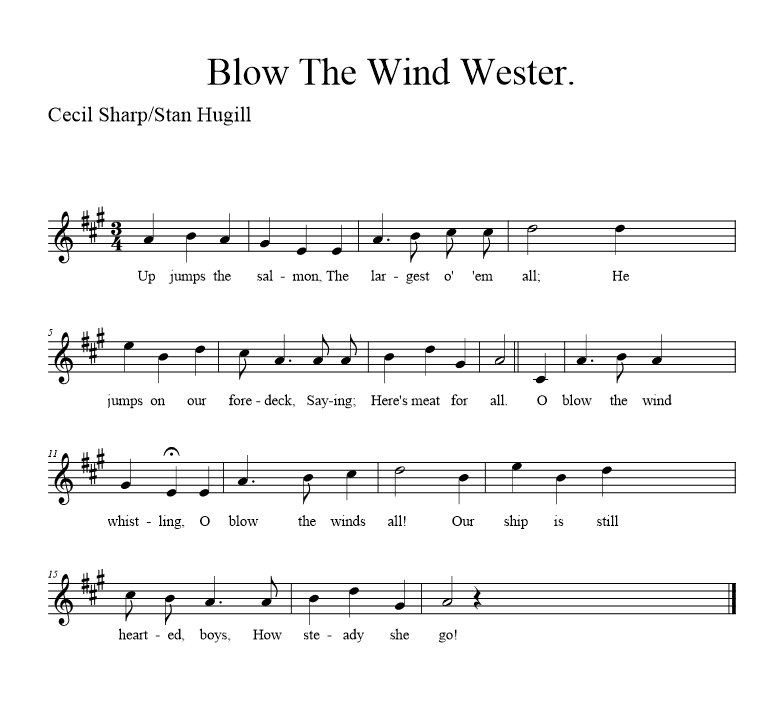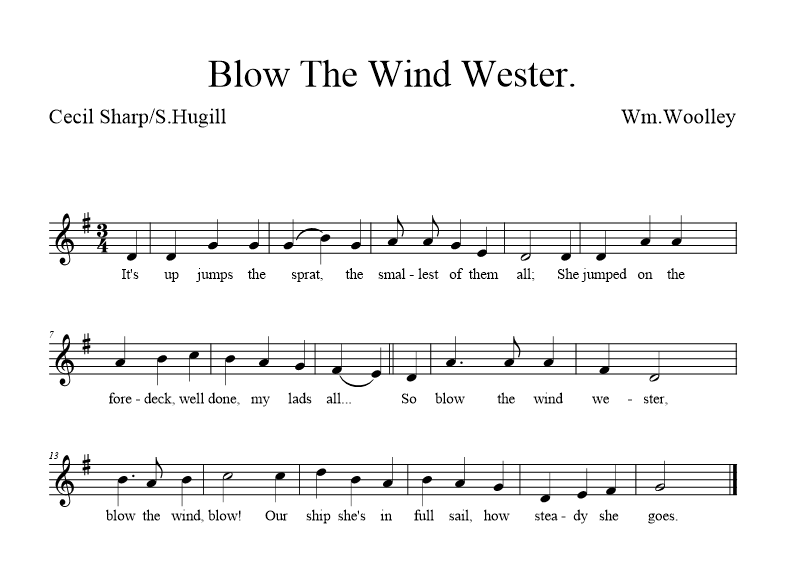Interesting Facts about the Off To The Southard Well Go
“As Off To The Southard We Go” according to Stan Hugill, is another variation of the “Heave Away Cheerily O!”, he took it from the “Journal Of The Folk Song Society” No. 20 (November 1916; page 309, 310). In the Journal original title of this song is “Off To The Southard We’ll Go” and it is described as the “hauling chanty”. This shanty has been sung by shantyman Mr. John Perring, at Dartmouth on February 1912 (Noted by H. E. Piggott). Stan Hugill gives us only one verse of this song, fortunately, I had access to the original Journal which contains the six verses, so I have a chance to reconstruct this song in full length. I will reconstruct this song as the anchor capstan shanty.
The source of this sea shanty
The music: “Journal Of The Folk Song Society” No. 20 (November 1916; page 309, 310).
The lyrics: “Journal Of The Folk Song Society” No. 20 (November 1916; page 309, 310).
Mentioned in: “Shanties from the Seven Seas” by Stan Hugill (1st ed: p 311).
The Record of the Off To The Southard Well Go
You also can find this record on my YouTube channel here or directly listen below. Additionally, if you want to share your opinion about the record or share your opinion you can do it in my Facebook forum here, or leave a comment at the bottom of this blog article.
The musical notation
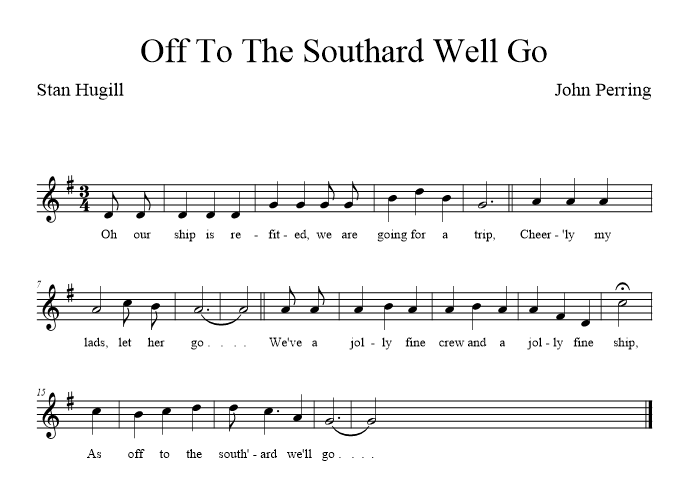
And the full lyrics
Off To The Southard Well Go
Oh our ship is refited, we are going for a trip,
– Cheer’ly my lads, let her go…
We’ve a jolly fine crew and a jolly fine ship,
– As off to the south’ard we’ll go…
* 2 *
So set all your sails, it’s a favouring wind,
Say good-bye to the friends you are leaving behind.
* 3 *
We shall soon clear the Channel and be well off the land;
Then the stewart will serve out the grog to each man.
* 4 *
But the wind is increasing, we must reduce sail.
Take a reef in the topsails and weather the gale.
* 5 *
Under low canvas four days we have been.
Four passing ships homeward bound we have seen.
* 6 *
But now we will set all our sails again.
And think nothing more of the wind and the rain.



